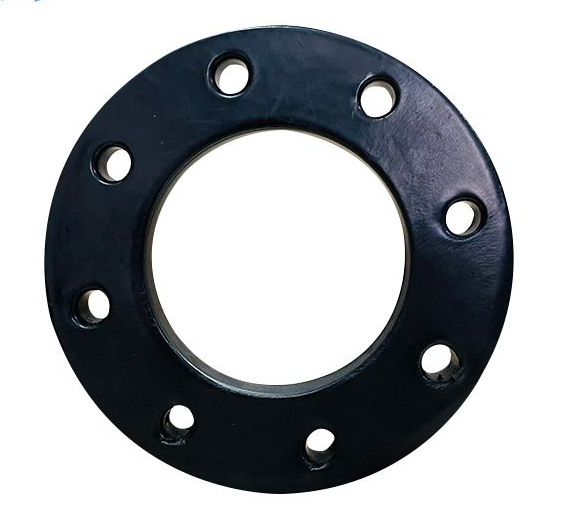-
Cangzhou Yulong Steel Co., Ltd.
-
Phone:
+86 13303177267 -
Email:
admin@ylsteelfittings.com
- English
- Arabic
- Italian
- Spanish
- Portuguese
- German
- kazakh
- Persian
- Greek
- French
- Russian
- Polish
- Thai
- Indonesian
- Vietnamese
- Zulu
- Korean
- Uzbek
- Hindi
- Serbian
- Malay
- Ukrainian
- Gujarati
- Haitian Creole
- hausa
- hawaiian
- Hebrew
- Miao
- Hungarian
- Icelandic
- igbo
- irish
- Japanese
- Javanese
- Kannada
- Khmer
- Rwandese
- Afrikaans
- Albanian
- Amharic
- Armenian
- Azerbaijani
- Basque
- Belarusian
- Bengali
- Bosnian
- Bulgarian
- Catalan
- Cebuano
- China
- China (Taiwan)
- Corsican
- Croatian
- Czech
- Danish
- Esperanto
- Estonian
- Finnish
- Frisian
- Galician
- Georgian
- Kurdish
- Kyrgyz
- Lao
- Latin
- Latvian
- Lithuanian
- Luxembourgish
- Macedonian
- Malgashi
- Malayalam
- Maltese
- Maori
- Marathi
- Mongolian
- Myanmar
- Nepali
- Norwegian
- Norwegian
- Occitan
- Pashto
- Dutch
- Punjabi
- Romanian
- Samoan
- Scottish Gaelic
- Sesotho
- Shona
- Sindhi
- Sinhala
- Slovak
- Slovenian
- Somali
- Sundanese
- Swahili
- Swedish
- Tagalog
- Tajik
- Tamil
- Tatar
- Telugu
- Turkish
- Turkmen
- Urdu
- Uighur
- Welsh
- Bantu
- Yiddish
- Yoruba

Aug . 05, 2024 01:08 Back to list
Reliable Diaphragm Pump Solutions for Efficient Slurry Handling and Management in Various Applications
Understanding Diaphragm Pumps for Slurry Applications
Diaphragm pumps are a fundamental component in many industrial processes, particularly when dealing with challenging materials like slurries. A slurry, defined as a mixture of solids suspended in a liquid, presents unique challenges for pumping systems due to its abrasive nature and varying viscosity. Diaphragm pumps have gained popularity for slurry applications due to their versatility, reliability, and efficiency. In this article, we will explore the functionalities, advantages, and considerations of using diaphragm pumps for slurry handling.
What are Diaphragm Pumps?
Diaphragm pumps operate by utilizing a flexible diaphragm that alternates between filling and discharging the liquid. The diaphragm is typically made from durable materials that can withstand corrosive substances and abrasives. The mechanism typically involves two main chambers separated by the diaphragm; as one chamber fills, the other discharges, facilitating continuous flow.
Advantages of Diaphragm Pumps for Slurry
1. Self-Priming Capabilities One of the standout features of diaphragm pumps is their ability to self-prime. This is particularly beneficial when dealing with slurries, which can often lead to air locks in other types of pumps.
2. Excellent Solids Handling Diaphragm pumps can efficiently handle slurries with high solid content without clogging. They are designed to manage larger particles compared to traditional centrifugal pumps, which might be prone to blockages.
3. Versatility Diaphragm pumps are versatile and can handle a wide range of slurry types, from those containing heavy solids to more viscous mixtures. This adaptability makes them suitable for various industries, including mining, wastewater treatment, and food processing.
diaphragm pump for slurry

5. Reduced Maintenance With fewer moving parts and the absence of seals, diaphragm pumps generally require less maintenance compared to other types of pumps. This reduction in maintenance contributes to lower overall operating costs.
Considerations for Using Diaphragm Pumps
While diaphragm pumps offer many advantages, there are some considerations to keep in mind
1. Pumping Efficiency Diaphragm pumps are generally less efficient than centrifugal pumps, especially for low-viscosity liquids. It's essential to evaluate the specific application requirements and select the appropriate pump type.
2. Material Compatibility The choice of diaphragm material is crucial, particularly when dealing with corrosive slurries. Users must ensure that the pump components are compatible with the materials being handled to prevent failures.
3. Limitations in Continuous Operation While diaphragm pumps are excellent for intermittent operation, they may not be the best choice for continuous pumping applications over long durations. The operational cycle of diaphragm pumps can lead to wear and tear that may require more frequent maintenance.
Conclusion
In conclusion, diaphragm pumps are a reliable and effective solution for handling slurries in various industrial applications. Their ability to manage solid-laden mixtures, along with their self-priming capabilities, makes them a preferred choice in settings where traditional pumps might falter. As with any pumping system, understanding the specific requirements of your application and considering the pump’s limitations will ensure optimal performance and longevity. Whether in mining, construction, or wastewater management, diaphragm pumps can provide the necessary support for efficient and safe slurry transfer.
Latest news
-
ANSI 150P SS304 SO FLANGE
NewsFeb.14,2025
-
ASTM A333GR6 STEEL PIPE
NewsJan.20,2025
-
ANSI B16.5 WELDING NECK FLANGE
NewsJan.15,2026
-
ANSI B16.5 SLIP-ON FLANGE
NewsApr.19,2024
-
SABS 1123 FLANGE
NewsJan.15,2025
-
DIN86044 PLATE FLANGE
NewsApr.19,2024
-
DIN2527 BLIND FLANGE
NewsApr.12,2024
-
JIS B2311 Butt-Welding Fittings LR/SR 45°/90° /180°Seamless/Weld
NewsApr.23,2024











